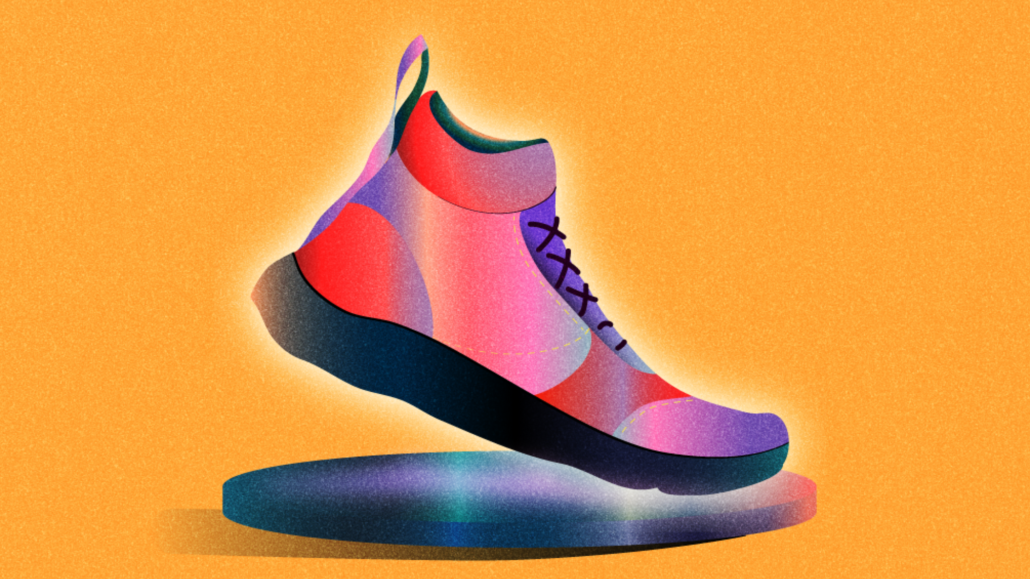How Adidas’ avatar launch signals the brand’s continued confidence in Web3

Two years into its Web3 roadmap, Adidas is on the cusp of launching its first avatar product. It’s a signal that the company is still full steam ahead on the metaverse — and the use of blockchain tech to build it.
The avatars, part of Adidas’ “ALTS” storyline, which ties the company’s non-fungible token products into a central narrative, are slated to be released after the third “chapter” of the storyline, which will kick off as early as next month, according to a post by the official ALTS Twitter account.
Roughly 20,000 Adidas NFT holders will each receive a unique avatar and profile picture, which the ALTS website describes as “a virtual identity you can represent and flex to your friends across different social platforms. What one’s virtual identity looks like is determined by one’s interaction with the brand through a variety of different narrative chapters.”
An Adidas representative did not respond to requests for comment, including a query about the specific platforms in which ALTS avatars will be available for use. Erika Wykes-Sneyd, the general manager of Adidas’ Web3 division Three Stripe Studio, wrote on X that the avatars would be interoperable across both Web2 and Web3 platforms.
“The technical difficulties of that kind of interoperability are absolutely forbidding, and so there is a reason why that interoperability does not really exist very much across gaming platforms,” said Nicholas Walters, the president and chief strategy officer of kidtech company SuperAwesome. “What does it mean to take my virtual item from ‘Gran Turismo’ to ‘Fortnite?’ They’re completely different games — completely different models, completely different representations of the self.”
Adidas NFT holders are excited to try out their avatars, regardless of where they will be available. Tim, a moderator of the official ALTS Discord channel who requested anonymity, said that he plans to use his profile picture on Twitter and Discord, and that he hopes to modify his avatar in Blender for use in both Web2 and Web3 metaverse platforms.
“I think the avatar sneak peak is amazing. I’ve been in the space for a long time and I’ve never seen anything like this before,” said the Discord mod, who purchased his first Adidas NFT in May 2022. “The design perfectly aligns with the Adidas brand.”
Sticking to the plan
When Adidas launched its first NFT collection in 2022, blockchain technology dominated the conversation around the metaverse. These days, Web3 platforms share a growing part of the metaversal stage with three-dimensional worlds such as Roblox and Fortnite, which do not rely on blockchain tech to function.
“The fact that Adidas has actually stayed the course means that they have some more fundamental beliefs about Web3 and why it’s valuable, and why it’s the right path,” said Timmu Tõke, the CEO of the avatar company Ready Player Me, which partnered with Adidas to develop an avatar creation platform in 2022. “They actually stayed the course when most of the brands were just like, ‘OK, it’s not cool anymore.’ So I think that actually gives them quite a bit of street cred in the space.”
Whether the company’s avatars exist on the blockchain or not, it could still be important for Adidas to place its avatars inside mainstream metaverse platforms such as Fortnite and Roblox if it wants denizens of the metaverse to actually use them on a regular basis. These gaming-based platforms currently represent the most popular use case for skins and virtual wearables, and any avatar that cannot be used on either platform is at risk of becoming more of a collectible than a bona fide signifier of virtual identity.
“Gen Alpha is growing up in Roblox, not on Instagram,” said Akash Nigam, the CEO of the avatar technology company Genies. “They’re growing up in these immersive or interactive gaming platforms — and the more that they spend time in these places, the more they’re going to spend on accessorizing their identity.”
More in Marketing

Best Buy, Lowe’s chief marketing officers explain why they launched new influencer programs
CMOs launched these new programs in response to the growing importance of influencers in recommending products.

Agencies create specialist units to help marketers’ solve for AI search gatekeepers
Wpromote, Kepler and Jellyfish practices aim to illuminate impact of black box LLMs’ understanding of brands search and social efforts.

What AI startup Cluely gets — and ad tech forgets — about attention
Cluely launched a narrative before it launched a tool. And somehow, it’s working.








